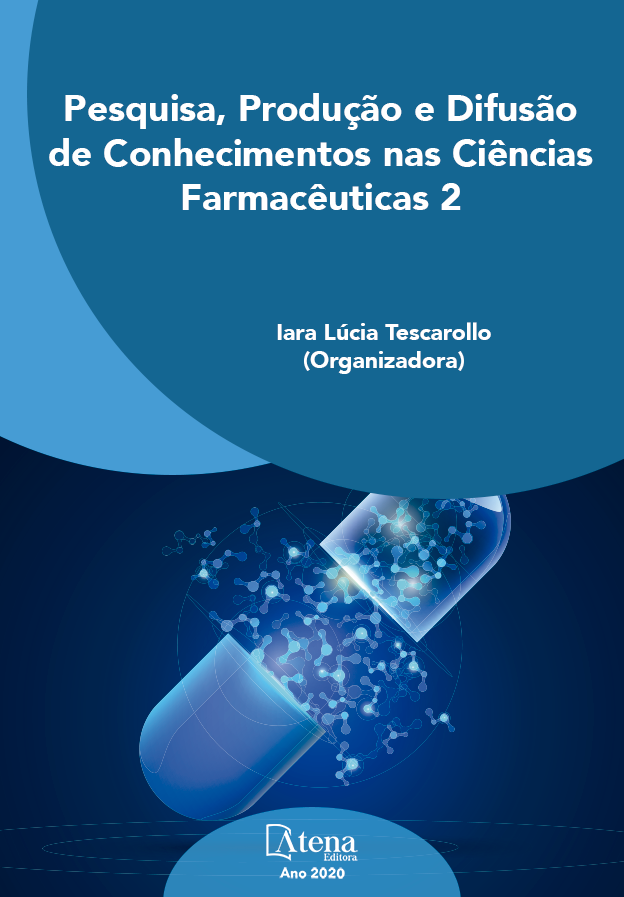
VERIFICAÇÃO DO POTENCIAL ANTIFÚNGICO DO ÓLEO ESSENCIAL DE FOLHAS DE GOIABEIRA (PSIDIUM GUAJAVA L.) SOBRE LEVEDURAS DO GÊNERO CANDIDA sp.
Devido à baixa eficácia, o efeito tóxico e a resistência dos fungos aos atuais antifúngicos, há uma crescente preocupação para a descoberta de novos fármacos. Um exemplo disso é o uso disseminado do fluconazol que levou à resistência da Candida krusei com base em estudos in vitro. A folha da goiabeira (Psidium guajava L.) é conhecida pela cultura indígena por tratar várias patologias como diarreia, disenteria, gastrite e cólica de intestino, tendo outros usos relatados como antibacteriano e antifúngico. O presente estudo verificou em meio de cultura a atividade antifúngica do óleo essencial das folhas de goiabeira sobre leveduras das espécies de Candida albicans, C. krusei e C. glabrata. Foram utilizadas três amostras de cepas do gênero Candida sp. de relevância clínica, na qual a C. albicans pura de padrão comercial e as demais foram obtidas de uma coleção de culturas microbianas de um laboratório particular. O óleo essencial obtido por hidrodestilação foi impregnado em discos de difusão estéreis, onde verificou a presença de um alo de inibição de 13mm para a Candida glabrata. Realizou-se o controle positivo com os fármacos fluconazol e cetoconazol a 1,5mg/ml e 2,0mg/ml respectivamente. Constatou-se a baixa suscetibilidade das cepas C. krusei e albicans frente ao fluconazol, conforme relata a literatura. Os resultados indicaram que há possibilidades de utilização do Pisidium guajava L. como fonte de pesquisa para novos medicamentos.
VERIFICAÇÃO DO POTENCIAL ANTIFÚNGICO DO ÓLEO ESSENCIAL DE FOLHAS DE GOIABEIRA (PSIDIUM GUAJAVA L.) SOBRE LEVEDURAS DO GÊNERO CANDIDA sp.
-
DOI: 10.22533/at.ed.6482020112
-
Palavras-chave: Inibição. Psidium guajava. Candida sp.
-
Keywords: Inhibition. Psidium guajava. Candida sp.
-
Abstract:
Due to the low efficacy, toxic effect and resistance of fungi to the current antifungal, there is a growing concern for the discovery of new drugs. An example of this is the widespread use of fluconazole, which led to the resistance of Candida krusei based on in vitro studies. The guava leaf (Psidium guajava L.) is known for indigenous culture because it treats various pathologies such as diarrhea, dysentery, gastritis and intestinal colic, and other uses are reported as antibacterial and antifungal. The present study verified in the culture medium the antifungal activity of the essential oil of the guava leaves on yeasts of the species of Candida albicans, C. krusei and C. glabrata. Three samples of strains of the genus Candida sp. of clinical relevance, in which pure C. albicans of commercial standard and the others were obtained from a collection of microbial cultures of a private laboratory. The essential oil, obtained by hydrodistillation, was impregnated in sterile diffusion discs, where it verified the presence of a 13mm inhibition alloy for Candida glabrata. Positive control was performed with fluconazole and ketoconazole at 1.5mg/ml and 2.0mg/ml, respectively. The low susceptibility of C. krusei and C. albicans strains to fluconazole was observed, as reported in the literature. The results indicated that there are possibilities of using Pisidium guajava L. as a research source for new drugs.
-
Número de páginas: 12
- RENATA VIEIRA DORIGON
- CRISLAINE FERNANDES CORREA


